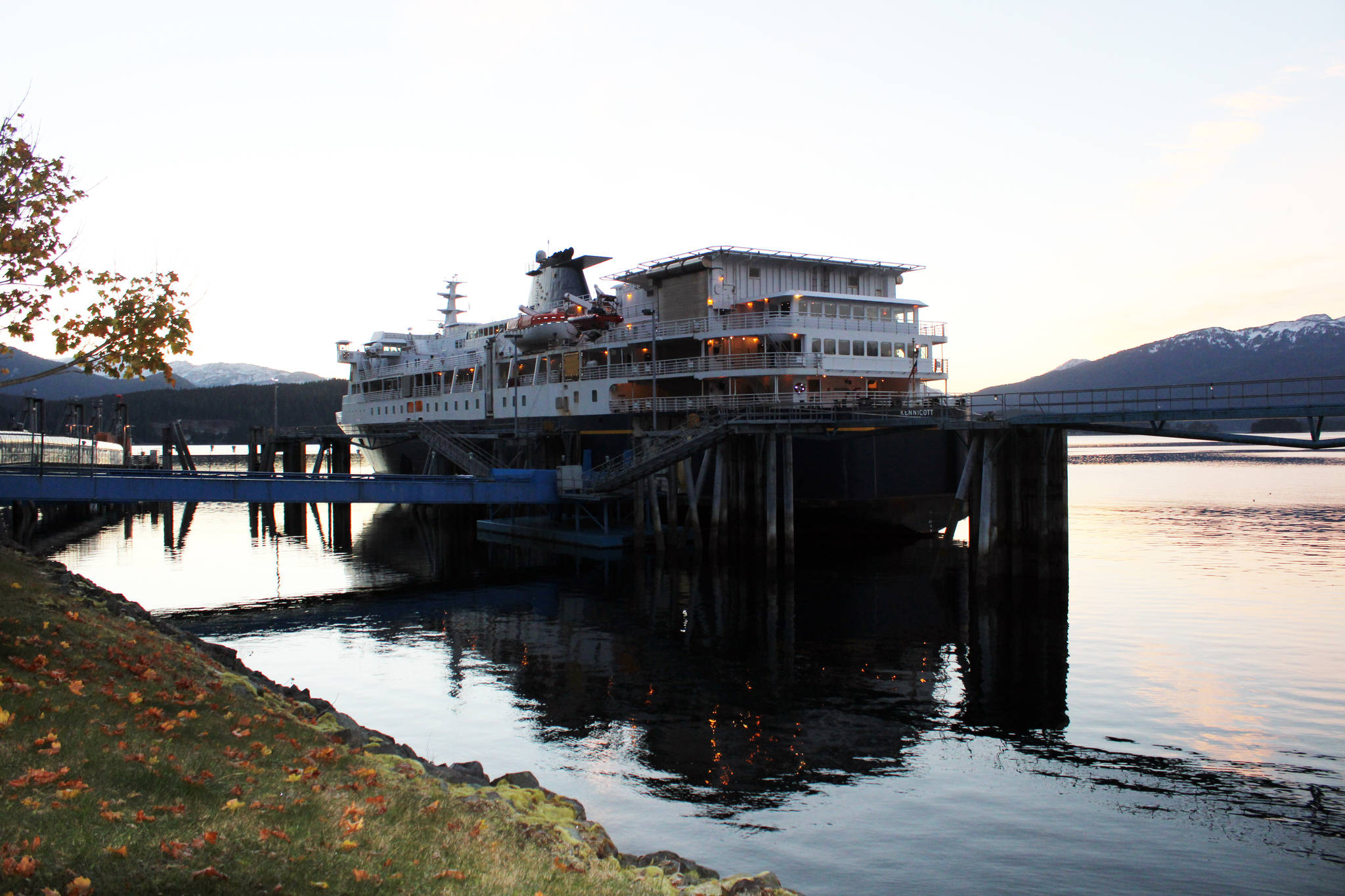Stakeholders of the Alaska Marine Highway System expressed frustration with the recommendations laid out in a report released Thursday by a reshaping work group established earlier this year.
“It was a little disappointing,” said Rep. Louise Stutes, R-Kodiak, in a phone interview with the Empire. “There’s some good stuff in the report, but it didn’t go far enough in a number of areas.”
Stutes was one of two state lawmakers on the nine-person work group and represents coastal communities dependent on the ferry system. The report’s recommendation of a nine-member board to oversee AMHS was a good start, she said, but feels the report doesn’t give the body enough teeth.
“They need to be in a position where they direct (Department of Transportation and Public Facilities) in relation to AMHS rather than advise them,” Stutes said. “Otherwise we end up with another board (Marine Transportation Advisory Board), which is not very effective.”
The report suggests the governor create the board through executive order, but Stutes suggested the board should be backed up in statute which would give the board a clearly defined and actionable role. She was critical of MTAB’s effectiveness, which she said was like “advising into a black hole.”
The report is similarly critical of the board’s effectiveness, saying while staffed with capable individuals, the board is not structured to effectively address AMHS’ issues.
Gov. Mike Dunleavy’s office did not immediately respond to comment.
Admiral Tom Barrett, who chaired the work group, told the Empire in an interview Friday the recommendations in the report are notional and merely provided a framework to follow.
“One of the things we took away, there’s not really long-term planning,” Barrett said. “This says ‘here’s a thought process.’ It’s going to be up to the state and the Legislature.”
The report recommends creating an operations board that would have the ability to advise DOT in the way a board of directors does a company. With the new board, MTAB would be dissolved or merged into the new structure, the report says, but the board itself would not have decision-making power over AMHS.
[Long-awaited ferry reshaping report released]
“Although authority remains with the governor and DOT&PF Commissioner, ability to influence fundamental decisions would come from the quality and credibility of its members and recommendations,” the report says.
The report also recommends raising revenue for the ferry by raising rates, dynamic pricing and cutting costs, partially by renegotiating union contracts. Ben Goldrich, Juneau representative for the Marine Engineers’ Beneficial Association and the work group’s representative for organized labor declined to comment on the recommendations and said MEBA leadership would be reviewing the report over the weekend.
Robb Arnold, vice chair of the Inland Boatman’s Union of the Pacific, said he felt the report misrepresented the share of labor’s costs in running the ferry. The report states personnel costs make up 70% of vessel operating costs, but Arnold said that number comes from a Northern Economics report of AMHS released earlier this year that was criticized by local lawmakers for a one-sided approach to analyzing the ferry system.
“We don’t have a guaranteed minimum income,” Arnold told the Empire Friday. “When they want to talk about flexibility; if we work we get paid. We don’t have guaranteed income. I think our union is the most flexible.”
[‘A perfect storm’: DOT deputy says everything that could go wrong with ferries did]
Cuts to the ferry, mechanical issues and reductions from the COVID-19 pandemic mean less work for members, Arnold said, and the union had lost membership and morale is low.
Stutes too, suggested that unions have shouldered an unfair amount of the blame for AMHS’ problems.
“It seems like all the woes of AMHS have been laid at the feet of the unions,” she said. “I don’t know that’s necessarily true.”
Stutes and the report both said there are many provisions within union contracts that are reasonable, but others are not. Overall however, Stutes said she believed the unions want to work with the state and be a part of the solution.
Arnold made similarly said the union made concessions in contract negotiations that resulted in a strike last summer.
“I just don’t think it’s fair, the ferries have been challenged to cut more; how much more do you want? Nobody’s going to want these jobs anymore,” he said.
The issue of being asked for further reductions also struck Alaska Native Sisterhood Grand President Paulette Moreno, who said she believed the ferries’ users, particularly the residents of predominantly Alaska Native villages, weren’t adequately consulted by the work group.
[Shelf-help: Locals send food to Southeast communities without ferry service]
“They came to us and asked ‘what is the minimum service we could offer?’ Well, their minimum amount last year caused people to have a crisis situation in terms of food,” Moreno told the Empire.
Reductions to AMHS led to a sparse winter schedule last year and this year appears to be similar. Lack of ferry service meant many Southeast and coastal communities have to rely on private couriers, which are more expensive. Last winter several grassroots efforts arose to send aid packages to those communities.
Moreno called the situation a humanitarian crisis, and suggested the state reach out to federal agencies to seek some kind of disaster relief.
“Cutting them off from their basic needs, and then doing it twice, shows a pattern of unresponsive to their constituents,” Moreno said. “If the state is going to look at this as a transportation problem instead of a human problem, we’re going to have people not getting medical supplies, not getting food.”
• Contact reporter Peter Segall at psegall@juneauempire.com. Follow him on Twitter at @SegallJnuEmpire.

